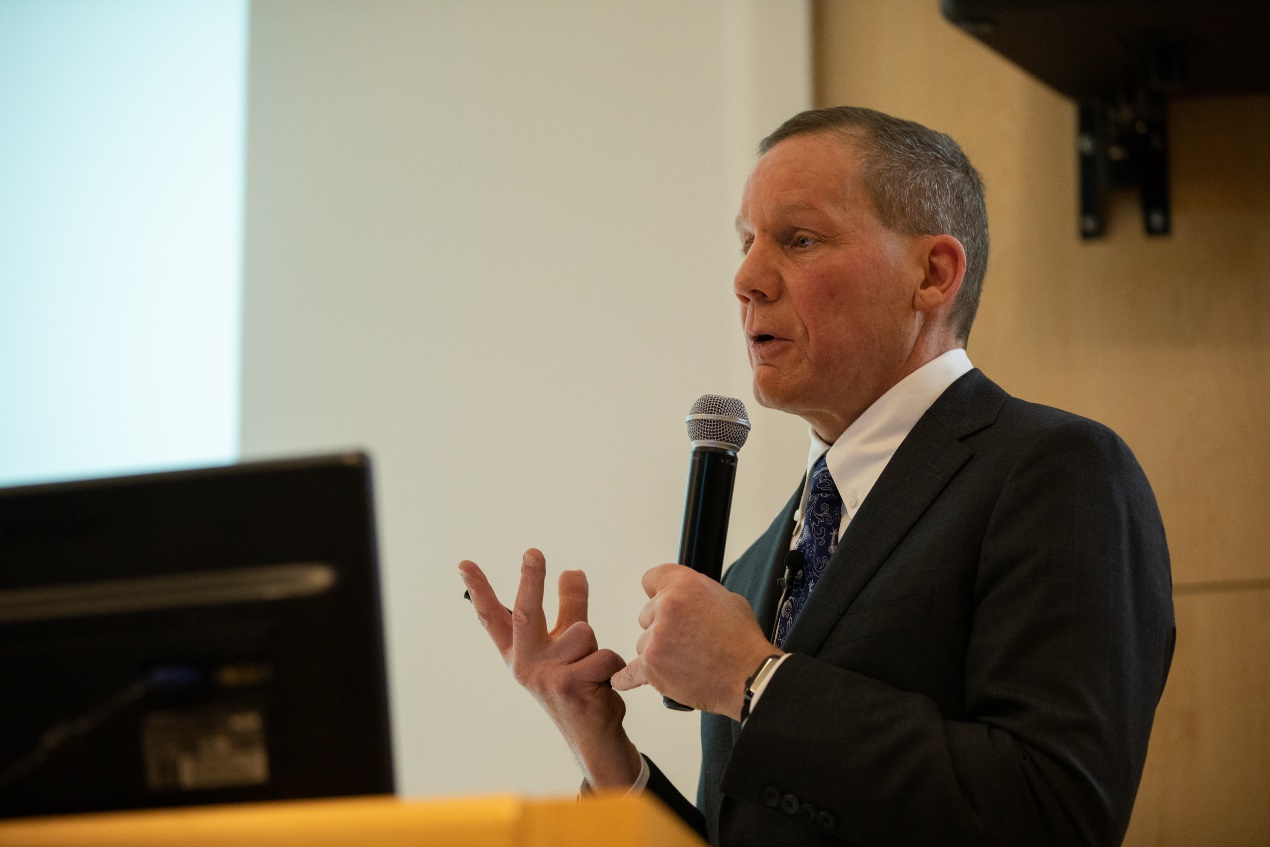[Peking University Global Fellowship] Harvard Professor Charles M. Lieber explores brain science
Dec 20, 2019
Peking University, Dec. 20, 2019: On December 10, Professor Charles M. Lieber from Harvard University delivered a lecture titled “New Paradigms for Electronic Tools in Brain Science”.
 Professor Charles M. Lieber speaking at the lecture
Professor Charles M. Lieber speaking at the lecture
A pioneer in nanoscience, Lieber’s latest research delves into nanoelectronics that could one day find their way into the human brain. These so-called “brain-machine interfaces” would see neurons and electrodes firing side-by-side, with applications straight out of science fiction: treating brain diseases and injuries, advancing AI development, and even enabling brain-to-brain communication.
But bringing machines into the mind is a delicate business. Our body’s immune system rejects foreign objects—in the brain, this means inflammation and brain damage. Moreover, though we rely on it every second of the day, we are only just beginning to understand how the brain works. Only by tackling these problems can nanomedicine and more become a reality.
Lieber pointed out two of the core goals of current research. Firstly, neurons—the special cells responsible for transmitting information throughout the body—need closer studies. Scientists have been working to develop stable, long-term monitoring methods with high spatio-temporal resolution. Secondly, we need to figure out how to control neural circuits at the level of single neurons. Current technologies can only modulate regions of the brain, i.e. thousands of cells at once.
Lieber’s research group is focused on two major projects: regulating the interaction between cells and probes, and understanding the repair of neural circuits. Lieber described his work in electrical probes, tiny machines injected by syringe. Unlike conventional probes, his research group’s ‘tissue-like’ devices did not lead to inflammation or scarring. Neurons were able to penetrate through the probes’ open mesh structure—an unprecedented level of integration with brain circuitry. Furthermore, these electronics could be scaled up, recording nerve signals for months at a time. This breakthrough brings us one step closer to mapping our brains on a single-neuron level.
Lieber’s presentation met with the keen interest from the audience. Still, people are far away from receiving nanomedicine by injection, but works like Lieber’s reflect a burgeoning field of research and development. We rely on the brain to understand the world—one day, we will come to understand the brain.
Charles M. Lieber is the Joshua and Beth Friedman University Professor at Harvard University, and an elected member of the National Academy of Sciences in the United States. He has published over 400 scientific papers about nanoscience. This lecture was co-sponsored by Peking University College of Engineering and the Office of International Relations with funding from the Guanghua Education Foundation.
Written by: Cherry Zheng
Edited by: Wang Nini
Source: PKU News (Chinese)
